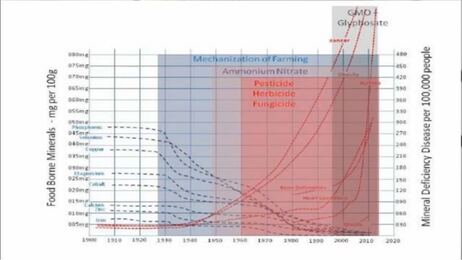Agriculture Projects 2018 - 2020
Growing Made Easy
|
Every one can grow something at home, its fun, easy and brings the security of knowing there will always be something to eat.
- What's worth growing when your space is limited?
- How do you make good soil in the middle of a city?
- What about feeding your plants & managing pests?
Combine Your Power
|
Training centre for permaculture micro farming.
600m sq micro farm incorporating the latest in practical techniques, innovative project management and team building.
600m sq micro farm incorporating the latest in practical techniques, innovative project management and team building.
Recovering Lost Genetics
|
Increasing the genetic diversity of the crops we plant will may be the key to building food supply resilience. Vitalis Ancient Grains project now has a divers stock pile of seeds up to 5000 years old.
Gardening for Techy's
Soil less, water based agricluture The extremely low wate make it possible to grow food in location and situations
ggg
Proposed Pilot Projects:
Commercial / Industrial Farming (Agro-Forestory)
Waste water treatment plant (chemical free).
Field trials of the latest organic fertilizers and soil amendment products.
Commercial / Industrial Farming (Agro-Forestory)
Waste water treatment plant (chemical free).
Field trials of the latest organic fertilizers and soil amendment products.
The "open to all" version of this site contains a summary of each project, its starting point and a host of open source information that we though was useful or interesting.
Become a member of Vitalis and join us as we work through each project.
Become a member of Vitalis and join us as we work through each project.
Why Bio-dynamic Farming is Important

Poor quality food results in unhealthy people.
Due to the short-sighted processes use in agriculture for the last 80-100 years, the quality of our soils has degraded to such an extent that the food we grow now has little to no nutritional value. Because of this half our team is dedicated to finding ways of using biodynamic and permaculture techniques on a commercial scale. The greatest challenge is "Absorbing the start up costs" and "Bridging the time gap" that results when changing from chemical to organic-based agriculture.
Due to the short-sighted processes use in agriculture for the last 80-100 years, the quality of our soils has degraded to such an extent that the food we grow now has little to no nutritional value. Because of this half our team is dedicated to finding ways of using biodynamic and permaculture techniques on a commercial scale. The greatest challenge is "Absorbing the start up costs" and "Bridging the time gap" that results when changing from chemical to organic-based agriculture.
One must not approach the topic of sustainable agriculture in a purely mechanical way, as doing so places one in opposition to "Natural Harmony". A bio-sphere is not a device to be controlled, it is a complex, living, self-sustaining and self-governing system.
We must act as responsible stewards of our environment rather than trying to master and control it. The tendency has been to view nature and the natural order of thing as an adversary and to bend the landscape to our will. Nature obviously reacts to the unnatural situations that we impose in a way that we perceive as an issue. Farming, especially industrial monoculture farming, is mankind exerting his desires upon a piece of land and asking it to do something that is fundamentally “out of alignment” with its nature.
We must act as responsible stewards of our environment rather than trying to master and control it. The tendency has been to view nature and the natural order of thing as an adversary and to bend the landscape to our will. Nature obviously reacts to the unnatural situations that we impose in a way that we perceive as an issue. Farming, especially industrial monoculture farming, is mankind exerting his desires upon a piece of land and asking it to do something that is fundamentally “out of alignment” with its nature.
- Plants have evolved all kinds of defences against their natural predators, as well as complex interaction and relationships with other plants, microbes and especially fungi. Helping the plants to strengthen their defences by insuring their allies are present is far more sensible and sustainable than poisoning everything with pesticides, herbicides and fungicides.
- Plants are the masters at dealing with mineral deficiency.
Even when lacking every trace element and most of the common / essential elements, a plant will grow and attempt to produce seeds to ensure the continuation of its species. A plant might look green but it is not producing a crop with any nutritional value. - Soil is supposed to be full of living organisms that convert dead plant material, waste bio mass and raw rock into more soil and bioavailable nutrients for the next generation of plants. Plants have evolved incredibly complex interactions with the soil microbes and fungi, complete with communication and defence processes and trading networks.
- Pouring huge amounts of synthetic fertilizer onto the land disrupts trading network resulting in the loos of soil microorganisms.
Chemicals like Glyphosate kill off beneficial soil bacteria and can actually encourage harmful strains. - The sudden increase in cabbage eating insects in a cabbage field is natures attempt to address the imbalance in bio diversity.
An increase in pathogens that weaken or kill a crop is a sign that the soil was not capable of supporting those plants.
In the natural order one set of plants will be killed off allowing another species to colonize the area and repair the land.
If these basic concept are understood, one should realize that any grower need only look to after the soil its self, with special attention given to soil structure, nutrient, mineral and carbon content & the restoration of the soil micro biome.

